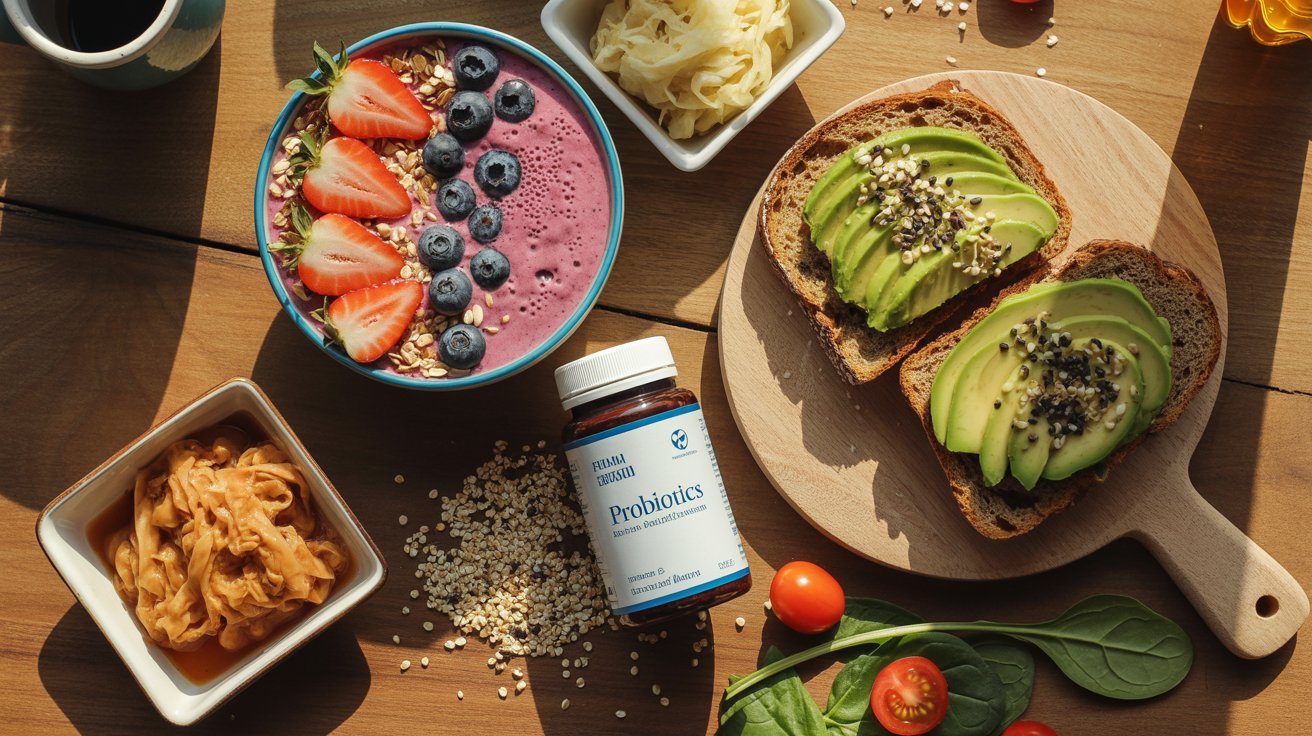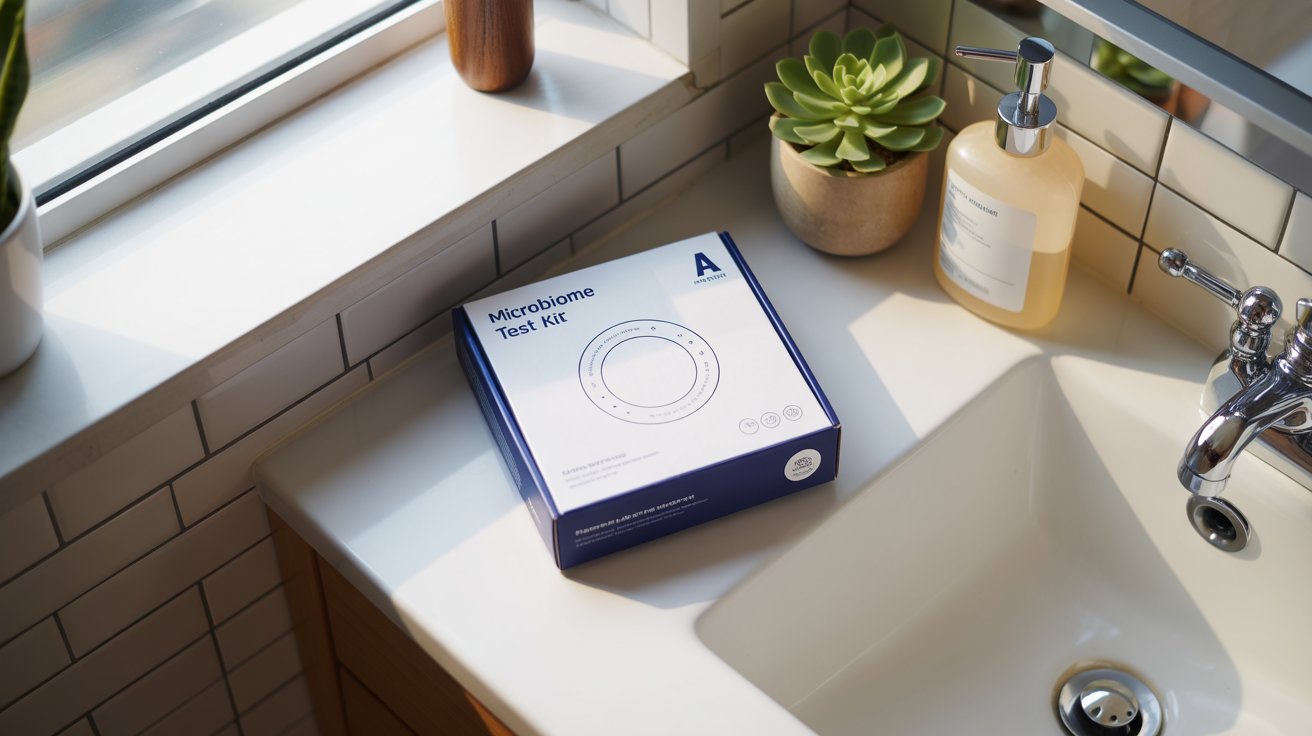You’ve probably heard that gut health matters—but what if I told you it’s deeply tied to chronic diseases too? The link between gut health and chronic diseases is stronger than ever, and it’s not just about digestion anymore.
From brain fog to blood sugar spikes, your microbiome could be influencing everything from your mood to your metabolism. In this post, we’ll uncover how your gut might be the hidden key to preventing or managing some of the most common long-term illnesses.
What Is Gut Health, Really?

Gut health isn’t just about whether or not you feel bloated after pasta night. It’s about the balance of bacteria (good and bad), yeasts, and other microorganisms in your digestive tract—what we call the gut microbiome. These little critters help digest food, produce vitamins, fight off pathogens, and even communicate with your brain.
When your gut is balanced and diverse, you’re more likely to feel energetic, focused, and resilient. But when it’s out of whack (a state called dysbiosis), trouble starts to brew—and not just in your belly.
The Inflammation Highway: How Gut Issues Fuel Disease

Picture your gut lining like a tightly woven cheesecloth. When it’s healthy, it acts like a smart filter—letting nutrients in and keeping harmful invaders out.
But poor diet, stress, alcohol, antibiotics, and processed foods can weaken that lining. This leads to leaky gut syndrome, where unwanted particles sneak into your bloodstream and trigger immune responses.
That’s the starting point for chronic inflammation—a root cause of many long-term diseases. When your immune system is constantly “on,” it wears down your body over time. This inflammatory ripple effect can contribute to conditions like arthritis, heart disease, and even type 2 diabetes.
Autoimmune Diseases and the Gut Connection

Here’s where it gets really interesting: poor gut health is now linked to several autoimmune diseases. When your immune system is confused by foreign particles leaking through the gut lining, it can mistakenly start attacking your own tissues.
Common autoimmune diseases associated with poor gut health include:
- Rheumatoid arthritis
- Hashimoto’s thyroiditis
- Type 1 diabetes
- Celiac disease
- Multiple sclerosis
- Inflammatory bowel disease (IBD), including Crohn’s and ulcerative colitis
The shared thread? A dysregulated immune system often triggered by microbial imbalances and gut barrier dysfunction.
Gut Bacteria and Metabolic Health

Your gut bacteria help control how your body stores fat, balances blood sugar, and regulates hunger hormones. When your microbiome is in balance, your metabolism runs more smoothly.
But when harmful bacteria take over, you may experience:
- Increased insulin resistance
- Higher blood sugar levels
- Greater fat storage
- More cravings and unstable energy
This gut-metabolism connection is now being explored as a key contributor to obesity, type 2 diabetes, and non-alcoholic fatty liver disease.
Mood, Mental Health, and the Gut-Brain Axis

Ever felt “butterflies” in your stomach when you’re anxious? That’s the gut-brain axis in action. Your gut communicates with your brain via the vagus nerve, neurotransmitters, and even bacterial metabolites.
When your gut microbiome is in distress, it can produce fewer “feel-good” chemicals like serotonin and dopamine. This may lead to:
- Depression
- Anxiety
- Brain fog
- Trouble concentrating
Studies even suggest that imbalanced gut bacteria can worsen symptoms of neurodegenerative conditions like Parkinson’s and Alzheimer’s.
Cardiovascular Risk: The Heart-Gut Link

Your gut produces byproducts that can either support heart health or hurt it. One notable example is TMAO (trimethylamine-N-oxide), a compound linked to increased risk of heart attacks and strokes.
High levels of TMAO are associated with certain gut bacteria that thrive on red meat and processed food diets.
At the same time, healthy gut bacteria support lower cholesterol, improved blood pressure, and stronger blood vessel function—offering real protection for your heart.
Skin Conditions and Gut Health

Skin issues like acne, rosacea, eczema, and psoriasis are increasingly linked to what’s going on inside your gut. This is called the gut-skin axis. When inflammation starts in the gut, it often shows up on the skin.
Probiotic-rich diets and gut-supportive lifestyle changes have shown promise in calming these conditions, especially when paired with topical treatments.
The Role of Diet: Feeding the Good Guys

Here’s the good news—your gut microbiome is trainable. What you eat directly shapes which microbes thrive in your body.
A fiber-rich, plant-heavy diet filled with prebiotics and fermented foods can increase beneficial bacteria and reduce inflammation.
Foods that support gut health:
- Leafy greens, asparagus, garlic, and leeks (prebiotics)
- Yogurt, kefir, kimchi, and sauerkraut (probiotics)
- Polyphenol-rich foods like berries, olive oil, and green tea
- Bone broth and collagen to support gut lining
On the flip side, sugar, alcohol, ultra-processed foods, and artificial sweeteners can damage the gut lining and throw off the balance.
How to Know If Your Gut Needs Help

Listen to the signals your body is sending. You may benefit from gut support if you’re noticing:
- Frequent bloating or constipation
- Unexplained fatigue or brain fog
- Skin flare-ups
- Chronic pain or inflammation
- Food sensitivities
- Anxiety or mood swings
Testing options like stool analysis, breath tests, or elimination diets can help you get clearer answers, but often the first step is cleaning up your plate.
Why Gut Health and Chronic Diseases Are More Connected Than You Think

If you’ve been chasing symptoms without clear answers, it might be time to shift your focus inward—specifically to your gut. The relationship between gut health and chronic diseases is becoming impossible to ignore.
From autoimmune flare-ups to mental health struggles, your microbiome could be influencing far more than your digestion.
The best part?
You don’t have to overhaul your life overnight. Small, gut-friendly changes—like adding fermented foods or cutting back on sugar—can start tipping the balance back in your favor.
Listen to your gut. It’s wiser than you think.















